Solo hike through Joshua Tree National Park
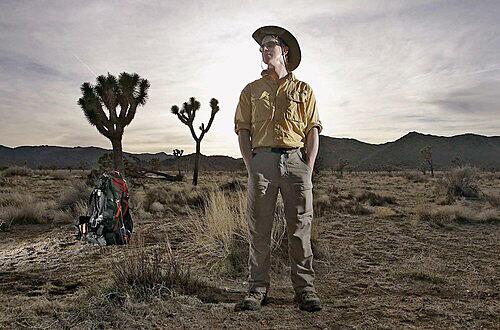
The Times’ Dan Neil scans the gorgeous, punishing terrain of Joshua Tree National Park, site of his recent solo hiking and camping trip. He was armed with some of the latest in backcountry electronics -- the tools of e-survival, as he calls it. (Robert Gauthier / Los Angeles Times)
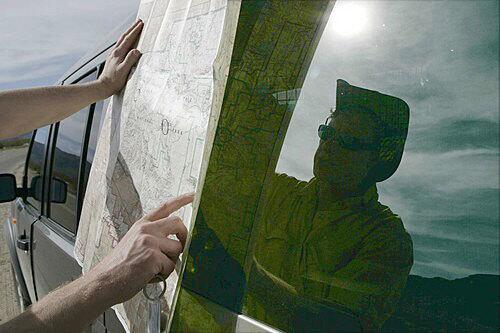
Though his electronic devices included a GPS unit with which he marked water caches he’d buried, a satellite phone and a personal locator beacon that would have mobilized search-and-rescue units if he’d been injured, Neil also found that a conventional map and compass came in handy. Here he checks his location the old-fashioned way. (Robert Gauthier / Los Angeles Times)
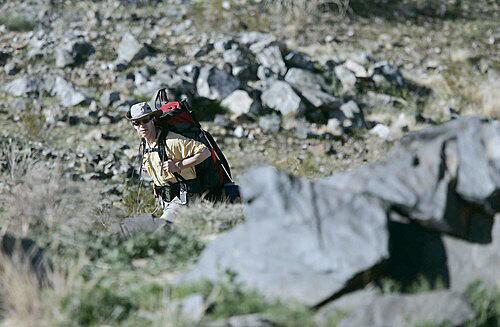
Neil checks out a potential route a day before beginning what he hopes will be a six-day, 75-mile trek, his up-to-the-moment communications equipment totaling about 7 pounds of hardware and batteries -- “a small anvil of circuitry in my 40-pound backpack,” he says. But Neil will encounter unexpected stumbling blocks. (Robert Gauthier / Los Angeles Times)
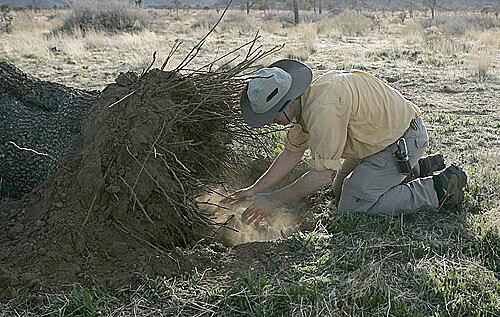
The hiker stations water at a point along his planned route, intending to use his GPS unit to find it again when he returns to the area. It’s thirsty country, and, Neil says, “If I fail to find even one of these caches, I will wind up very miserable or worse.” (Robert Gauthier / Los Angeles Times)
Advertisement
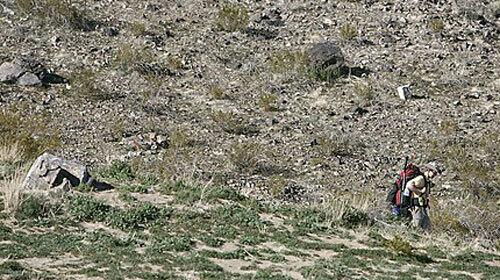
The Times writer picks his way over uneven ground. He would discover later that a gentle uphill slope that seemed manageable on his GPS unit’s topographic display was actually a taxing trudge on “ankle-deep kitty litter” -- making that day’s eight-mile hike under a beating sun seem a lot longer. (Robert Gauthier / Los Angeles Times)
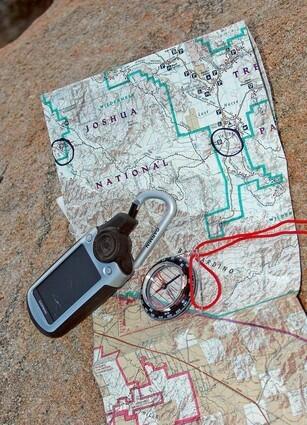
Neil’s Garmin Colorado 400t handheld GPS unit, pre-loaded with topographic maps of national parks in the West, rests on a paper map that, along with a compass, the writer used as backup. (Dan Neil / Los Angeles Times)
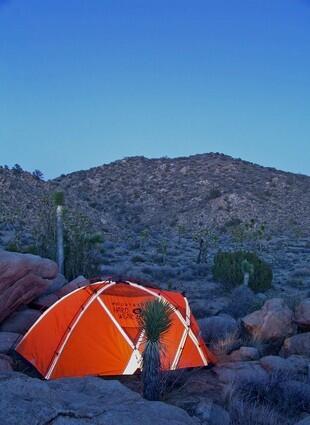
At the park’s Upper Covington Flat, Neil’s tent glows beneath a pretty sky. The writer, a husband and father, found a reason to appreciate his satellite phone : “The unexpected beauty of a sat-phone is not that everybody back home knows Im OK, but that I know theyre OK. It means I can keep playing.” (Dan Neil / Los Angeles Times)
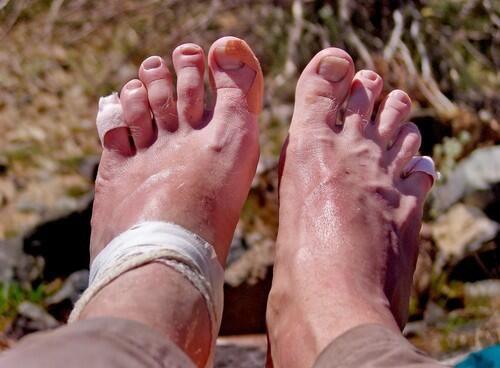
The hike ends after three days and 40 miles for a decidedly low-tech reason: Neil’s painfully raw, bandaged feet forbid him to go on. He hobbles a few miles before catching a ride in some geologists’ van and uses his satellite phone again -- to call his wife and ask to be picked up. (Dan Neil / Los Angeles Times)



